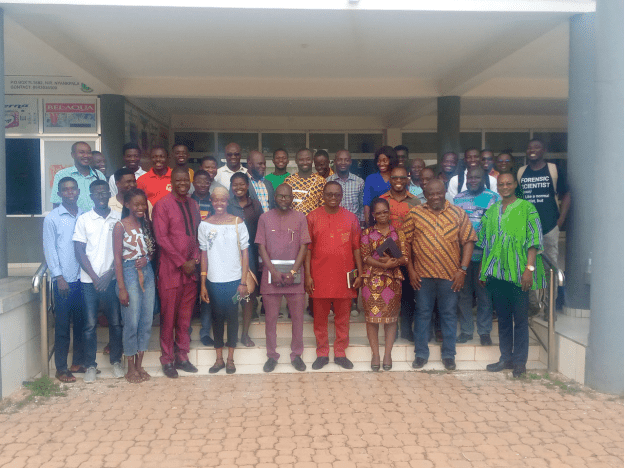The lack of regulation surrounding the use of artificial intelligence (AI) in academia could pose significant challenges, say experts.
As AI continues to advance, it has become an integral tool in academic research and education, a situation experts argue calls for policies to govern its use.
Some lecturers at the University of Development Studies (UDS) Faculty of Bioscience, who expressed their views during a panel discussion on the topic ‘The Emergence of AI in Tertiary Education; Benefits and Challenges’, indicated that AI has come to stay; but only needs regulation to ensure that it is used properly by both staff and students.
They stressed that in order to ensure responsible and ethical deployment of AI systems, regulatory bodies need to put in place comprehensive regulations specific to the academic environment.
Dean of the Faculty of Bioscience at the University for Development Studies (UDS), Prof. Elliott Haruna Alhassan, stated that the university needs an AI policy as soon as possible to enhance quality education as well curb high plagiarism.
“AI technologies have the potential to revolutionise various fields of study by automating processes, analysing vast data sets, and generating valuable insights. However, without clear guidelines, there is a risk of unintended consequences, misuse of technology, and violation of ethical principles. Academic institutions, researchers and students require regulatory policies that balance innovation with responsible AI deployment,” he said.
Head of Department (HOD), Computer Science, Prof. Abdul-Barik Alhassan, on his part, mentioned that AI has come to stay, and the only thing management of the various academic institutions can do is to embrace and come out with a regulatory policy to regulate both staff and students’ usage of AI.
“This is because we have moved beyond the information knowledge age where one has to visit the library to read more books; but in this technological era, research can be done via various means. If we overly rely on AI, the challenge would be that we would only continue to be in the information era without technical know-how to make us become innovative to address societal challenges,” he said.
Also, a Senior Lecturer at the Department of Biological Science, Saeed Folorunso Majeed, opined that there is a need to educate students on the ethical use of digital tools to ensure the appropriate use of the innovation.
“Lectures can also use them for their PowerPoint presentations, setting questions as well as its critical role in the research; but with every good thing like technology, regulation is very important.
“For the past three years, I observed that whenever I give an assignment, every student gets all correct; and I decided to investigate, only to realise that once you give them any assignment or online quiz, they quickly copy the question to the app for response to generate the answer,” he shared his observation.
The key areas for regulatory focus, as mentioned, include ethical considerations, transparency and explainability, intellectual property and ownership, and accountability.
Dr. Lydia Quansah, Head of Department of Forensic, noted that though AI could make both students and staff lazy, the regulation would enable them to use it solely for studies and not research or thesis work
“I think the only thing to do is to curb the misuse is regulation and policies, especially in academia; but the opportunities are there for students to use for their studies, which we need to encourage them,” she stated.










